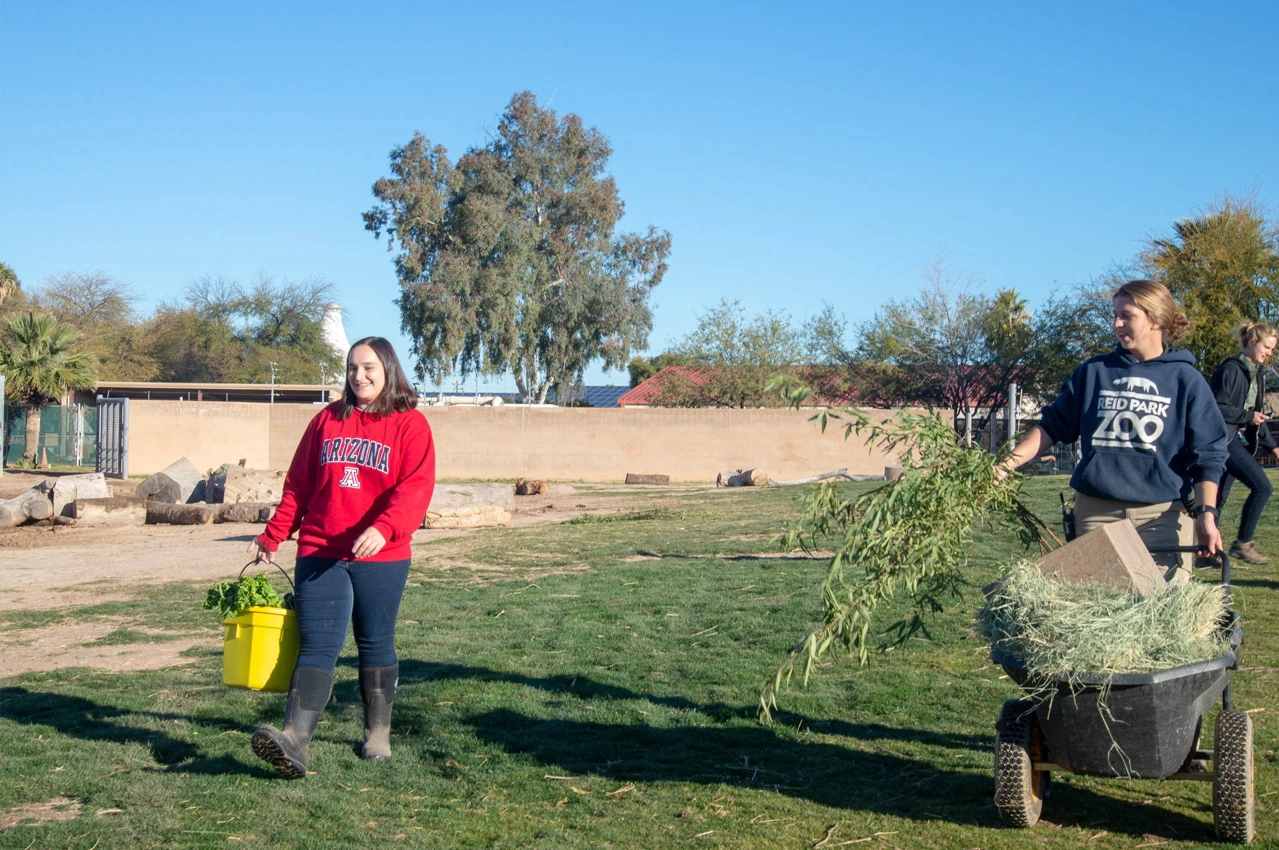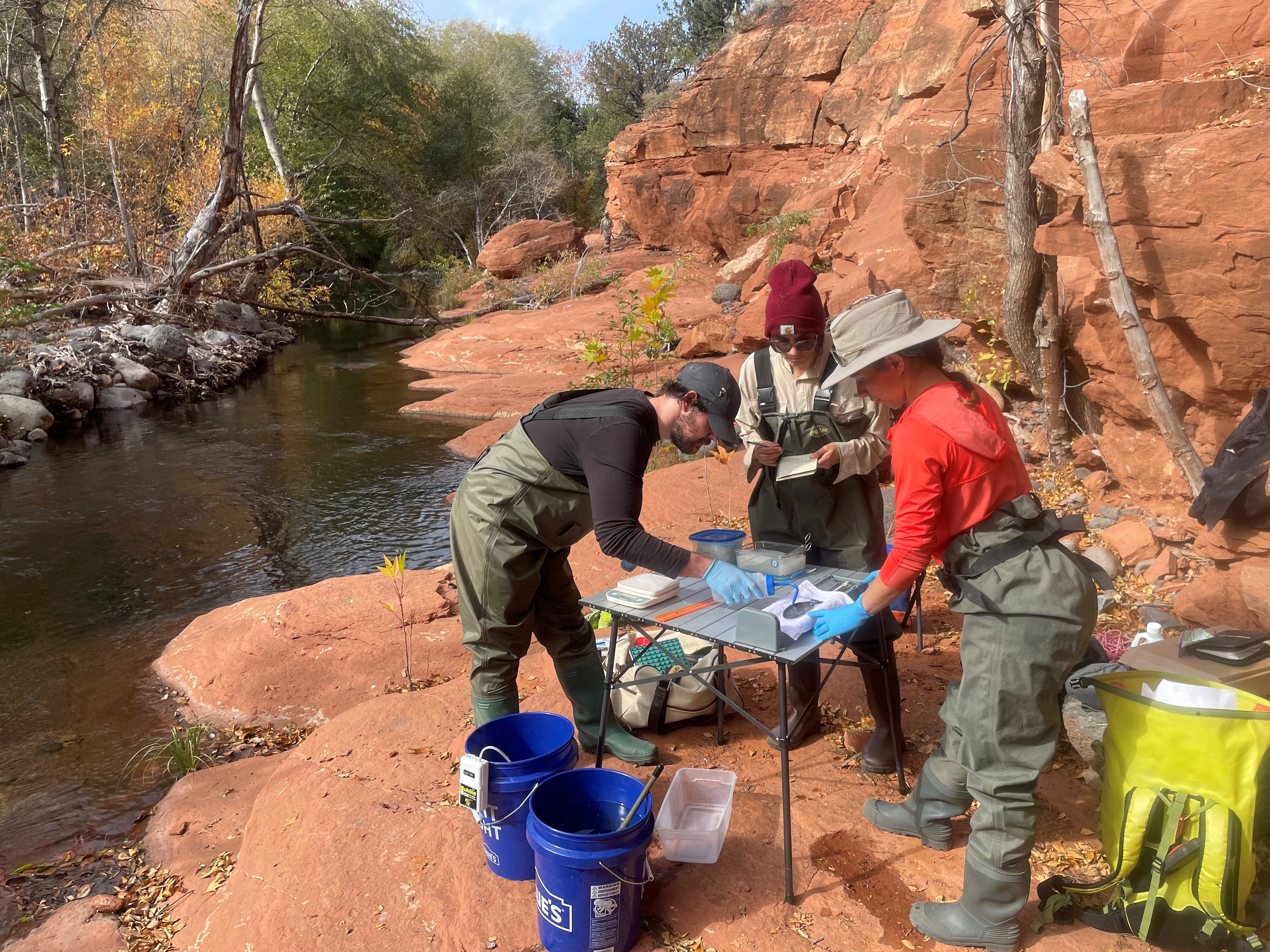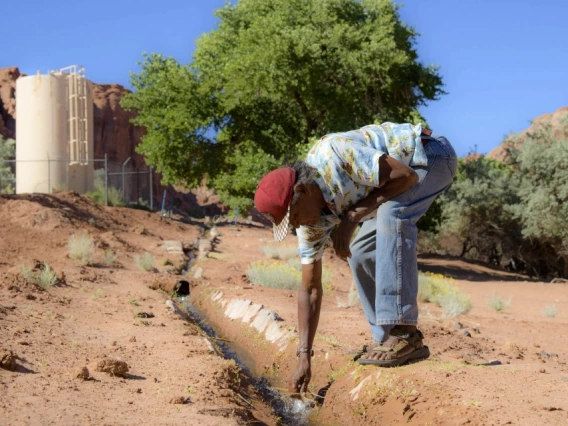
Environmental & Water Resource Economics
Study subjects like law, history, climate assessment, policy and environmental resources to lead the economic changes needed to bring quality drinking water and resources to communities. You'll gain the skills needed to work in the private and public sectors, or continue your studies in graduate school.
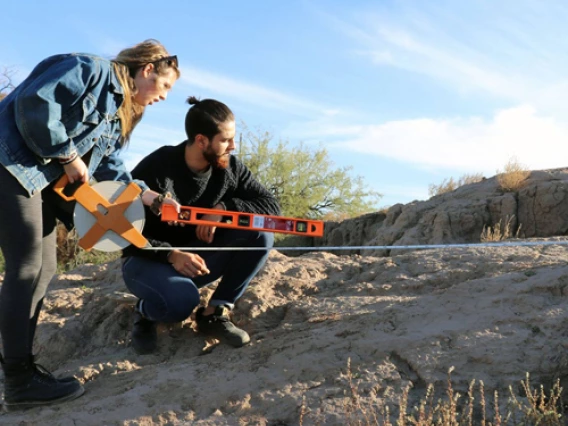
Environmental Science
Get the training you need to solve environmental challenges in a time of rapid ecological change. With four degree emphases to choose from you can customize your environmental science degree to your interests from physical and chemical dynamics to soil, air and water sciences.
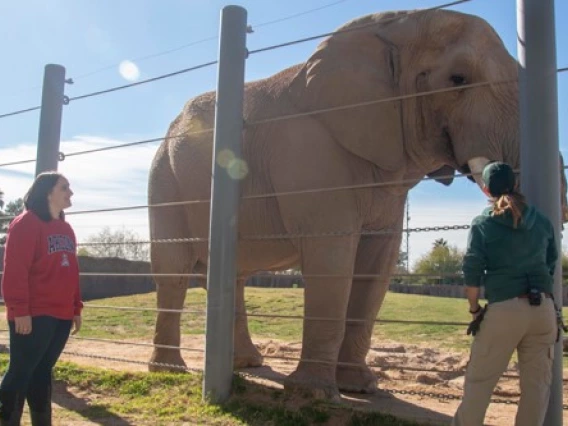
Natural Resources
Embark on a journey to protect and sustain our planet, natural resources and wildlife. Our program offers you six specialized emphases, equipping you with the hands-on training you need for careers in sustainability from wildlife biologists and zoologists to natural resources managers and fishery technicians.
Environment and resources majors at the University of Arizona
Ready to lead innovative solutions to resource economics, policy and conservation, and environmental science? Connect with us to get a digital brochure on exclusive student resources, financial aid opportunities and sample 4-year plans for our environment and resources degrees.
College is a big investment, but a University of Arizona education may be more affordable than you think. No matter your background or family’s financial situation, you have options to make it manageable.
At Arizona, 9 out of 10 students receive financial aid. That means most students pay less than the estimates shown here. By maximizing your financial aid – scholarships, grants, loans, or work-study – you can lower your costs while earning a degree that will pay you back for a lifetime.
Estimated cost of tuition for first-year and transfer students:
- Arizona residents: $13,900/yr
- Non-Arizona residents: $42,300/yr
Get our guide to learn how students like you are funding their futures.
Application requirements vary based on your status as a first-time, transfer, international, online or returning student.
- Students who haven't completed 12+ transferable post-high school college credits are considered a first-time college student, and must meet Arizona's core competency requirements to be eligible to apply.
- You are considered a transfer student if you have completed 12+ transferable post-high school college credits.
- If you are under the age of 22 at the start of your desired term, you will need to meet the core competency requirements and have a minimum 2.0 cumulative college/university GPA.
- If you are 22 or older at the start of your desired term, you will need a minimum 2.0 cumulative college/university GPA.
- SAT/ACT scores are not required for general admission.
- You have the option to submit a resume and 500-word personal statement during your application.
Get the guide to find out more details about the application process and deadlines.
Degrees in environmental science and natural resources prepare you for careers and graduate programs at the intersection of society, sustainability and conservation.
According to the U.S. Bureau of Labor Statistics1, 2023 median pay for conservation scientist careers was $68,300. Similar careers include:
- Environmental scientist: environmental scientists and specialists use their knowledge of the natural sciences to protect the environment and human health.
- Conservation Scientists: conservation scientists and foresters manage the land quality of forests, parks, rangelands, and other natural resources.
- Hydrologists: hydrologists study how water moves across and through the Earth’s crust.
- Water quality manager: monitor and oversee compliance of safe, quality drinking water while guiding optimal, efficient water systems.
- Environmental economic policy analyst: work as a political scientist to understand the effects of policies and assist government agencies or private corporations with business decisions relevant to the environment.
1U.S. Bureau of Labor Statistics. (2024b, April 17). Conservation scientists and Foresters. U.S. Bureau of Labor Statistics. https://www.bls.gov/ooh/life-physical-and-social-science/conservation-s…
Ready to start your career in resource management and environmental science?
From our welcoming local community to the sunshine gracing our campus, every corner holds the promise of new adventures and personal growth. Your journey to a lucrative career at the intersection of environmental resource management and conservation begins here. Sign up to discover what it means to be a part of the University of Arizona College of Agriculture, Life & Environmental Sciences.

